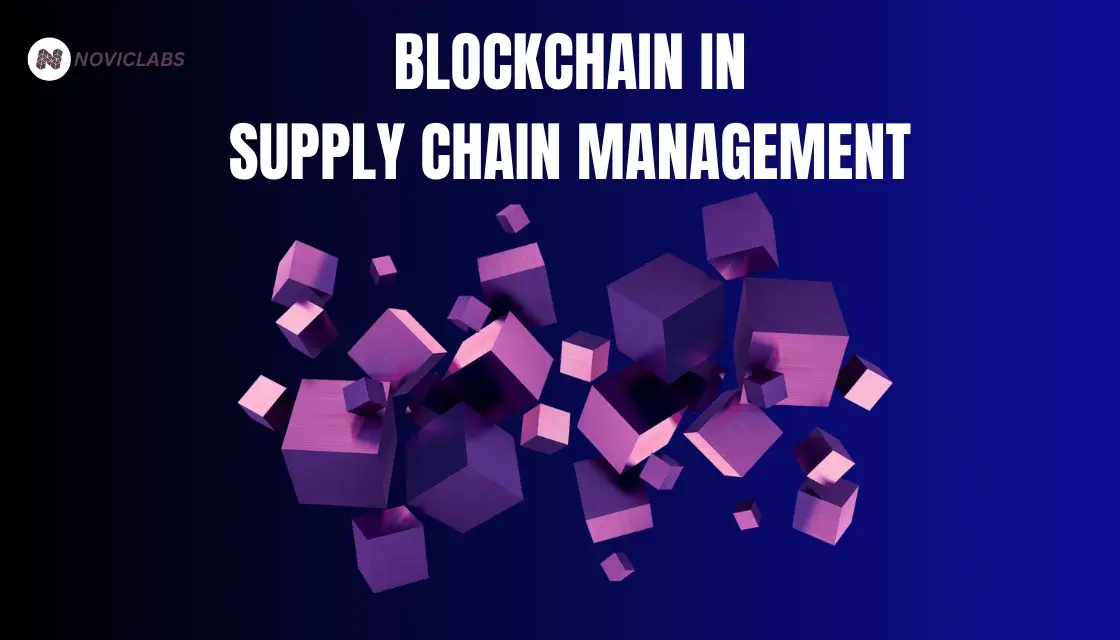Jul 20, 2022
Role of Blockchain in Supply Chain Management
What Is Blockchain?
Before diving into its role in supply chains, it’s important to understand what Blockchain actually is. At its foundation, Blockchain is a distributed digital ledger that records transactions across a network of computers. Once data is entered, it cannot be changed without altering all subsequent blocks and gaining consensus from the network—making it highly secure and tamper-proof.This technology brings trust and accountability to systems that involve multiple stakeholders.

Challenges in Traditional supply chains
Traditional supply chains often struggle with:
Lack of transparency It’s hard to trace the origin or condition of products.
Data silos Each party uses its own system, leading to inconsistencies.
Manual processes Paperwork and manual tracking slow things down.
Fraud and counterfeiting Especially in pharmaceuticals, food, and luxury goods.
These issues lead to delays, higher costs, and loss of trust among consumers.
How Blockchain Helps Supply Chain Management
Blockchain addresses these challenges in several impactful ways:
1. Transparency & Traceability
Blockchain records every transaction or movement of goods on an immutable ledger. This means anyone with permission can see the history of a product—where it came from, who handled it, and when.
Use Case:
In the food industry, Blockchain allows retailers to trace contaminated products back to the source in seconds, not days.In the food industry, Blockchain allows retailers to trace contaminated products back to the source in seconds, not days.
2. Enhanced Security
Since data on the Blockchain can’t be altered without consensus, it reduces the risk of fraud and tampering. Each transaction is encrypted and linked to the previous one, adding layers of protection.
Use Case:
Luxury brands use Blockchain to verify the authenticity of their products and fight counterfeiting.
3. Real-Time Updates
With Blockchain integrated into IoT devices or logistics systems, real-time data—like location, temperature, or condition—can be recorded and shared instantly.
Use Case:
In pharmaceuticals, it ensures that temperature-sensitive drugs are transported under ideal conditions.
4. Reduced Costs & Paperwork
Blockchain" class="active:font-bold">smart contracts (self-executing contracts with Blockchain-based rules) can automate payments, customs clearance, or compliance checks, reducing manual labor and costs.
Use Case:
Shipping companies use Blockchain to automate and speed up port documentation and customs processes.

Benefits of Blockchain in Supply Chain
Here’s a quick list of the benefits:
Trust and accountability among all parties
Accurate, real-time data and tracking
Faster operations with automation
Cost savings through reduced errors and paperwork
Improved sustainability by tracking environmental impact
Industries Actively Using Blockchain in supply chains
Retail:
For verifying product origins and ethical sourcing
Healthcare:
For safe and compliant pharmaceutical delivery
Food & Agriculture:
For tracking perishable goods and preventing waste
Logistics:
For streamlining operations and boosting efficiency
Automotive:
For tracking parts and ensuring manufacturing compliance
Final Thoughts
Blockchain in Supply Chain Management isn’t just a trend—it’s a game-changer. By adding transparency, trust, and automation to the entire process, it helps businesses stay competitive in a fast-moving world. As more companies adopt Blockchain, we can expect to see smarter, faster, and more reliable supply chains that benefit both businesses and consumers.
STREAMLINE YOUR BUSINESS WITH AI?
Main
Resources
Developers
Company
Contact Us
+1 (999) 888-77-66
hello@noviclabs.com
Location
483920, Indonesia,
Lampung 22/2/5, Office 4
© 2023 Noviclabs All rights reserved.